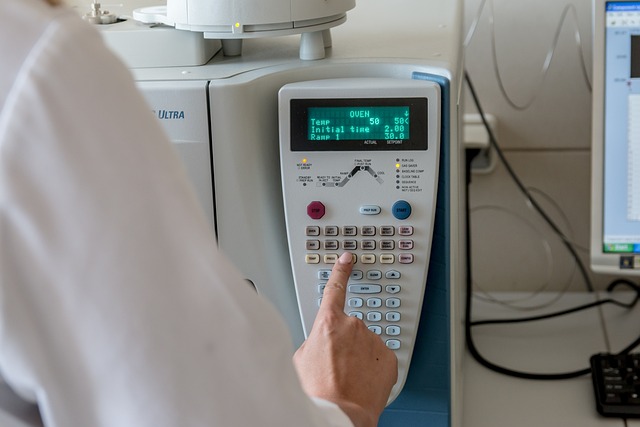The UK Vitamin B12 Blood Test is an essential diagnostic tool for evaluating liver health and detecting gluten-related disorders. It measures vitamin B12 levels, crucial for DNA synthesis, red blood cell production, and liver function. Abnormal B12 levels can indicate conditions like chronic liver disease or malabsorption issues, which may be due to pernicious anemia, celiac disease, or other hepatic disorders. The test complements traditional liver function tests by providing additional insights that can catch early changes in liver health. It's also vital for diagnosing macrocytic anemia and monitoring the progression of liver diseases, as well as evaluating treatment effectiveness. Elevated methylmalonic acid and homocysteine levels, associated with B12 deficiency, can point to underlying conditions that affect liver function. Healthcare providers must interpret these results alongside other markers to ensure accurate diagnosis and effective patient care, which may include B12 supplementation and addressing potential causes of malabsorption. Regular monitoring post-treatment is crucial for confirming the resolution of deficiencies and assessing improvements in liver function tests, thereby facilitating long-term management of related health issues. The UK Vitamin B12 Blood Test plays a pivotal role in this process, supporting overall patient well-being by providing critical insights into nutritional status and its impact on liver function.
Medical professionals play a pivotal role in the early detection and management of liver disorders. An article delves into the advanced domain of liver function tests, with a particular emphasis on the UK Vitamin B12 Blood Test as a diagnostic tool. This analysis will guide healthcare practitioners through understanding its significance, interpreting results alongside other hepatic markers using the Liverpool Criteria, and addressing treatment protocols for abnormal readings. The integration of these tests is crucial for comprehensive liver assessments and optimizing patient outcomes.
- Understanding Advanced Liver Function Tests: The Role of UK Vitamin B12 Blood Test in Diagnosis and Management
- Interpreting Liverpool Criteria: Integrating UK Vitamin B12 Blood Test with Other Hepatic Markers for Comprehensive Assessment
- Clinical Implications and Treatment Protocols for Abnormal UK Vitamin B12 Blood Test Results in Liver Function Tests
Understanding Advanced Liver Function Tests: The Role of UK Vitamin B12 Blood Test in Diagnosis and Management

Laboratory assessments of liver function are pivotal in diagnosing and managing hepatic disorders, with advanced tests providing nuanced insights into overall liver health. Among these, the UK Vitamin B12 Blood Test stands out for its diagnostic utility. This test measures the levels of vitamin B12 in the bloodstream, a nutrient crucial for DNA synthesis and red blood cell formation. Elevated or depleted B12 levels can indicate various conditions affecting the liver, such as chronic liver disease, where impaired liver function can lead to malabsorption of vitamin B12. Conversely, high B12 levels may suggest a compensatory response to liver damage or the presence of other hematological disorders. In clinical practice, the UK Vitamin B12 Blood Test serves as an essential tool for clinicians to monitor disease progression and treatment efficacy in patients with liver-related conditions. It complements other liver function tests like albumin, bilirubin, and transaminases by offering a distinct biomarker that can reveal subtleties in liver health, ultimately aiding in the tailored management of hepatic diseases. The integration of this test into the diagnostic arsenal underscores its importance in early disease detection, guiding treatment plans, and potentially improving patient outcomes.
Interpreting Liverpool Criteria: Integrating UK Vitamin B12 Blood Test with Other Hepatic Markers for Comprehensive Assessment

The Liverpool Criteria serve as a gold standard in diagnosing gluten-related disorders by integrating various clinical and serological markers. A key component of this diagnostic framework is the UK Vitamin B12 Blood Test, which plays a pivotal role in assessing macrocytic anemia, a condition often associated with pernicious anemia and celiac disease. This test measures the concentration of vitamin B12 in the bloodstream, which can be deficient due to malabsorption caused by these conditions. When interpreting the UK Vitamin B12 Blood Test within the Liverpool Criteria, it is essential to consider its results alongside other hepatic markers such as gamma-glutamyl transferase (GGT), alanine aminotransferase (ALT), aspartate aminotransferase (AST), and alkaline phosphatase (ALP). These enzymes are indicators of liver health, and their levels can be influenced by diet, medication, genetic factors, and underlying diseases. By combining the UK Vitamin B12 Blood Test with these hepatic markers, medical professionals can obtain a more comprehensive and accurate assessment of liver function and the presence of gluten-related disorders. This multifaceted approach to diagnosis is vital in guiding treatment plans and improving patient outcomes.
Furthermore, the integration of the UK Vitamin B12 Blood Test with other hepatic markers underscores the importance of a holistic approach to liver function tests. The interplay between nutritional status, as indicated by vitamin B12 levels, and liver enzyme activity provides a broader perspective on an individual’s health. This synergistic evaluation enables healthcare providers to detect subtle abnormalities that may be overlooked when relying on a single test. It is through such detailed and nuanced assessments that medical professionals can deliver personalized care tailored to the specific needs of their patients, ultimately leading to better management of gluten-related disorders and liver health.
Clinical Implications and Treatment Protocols for Abnormal UK Vitamin B12 Blood Test Results in Liver Function Tests

Abnormal UK Vitamin B12 blood test results can have significant clinical implications, particularly in the context of liver function tests. Elevated levels of methylmalonic acid and homocysteine, which often accompany low vitamin B12, may indicate malabsorption or a defect in the utilization of this essential vitamin. These findings can suggest underlying conditions such as pernicious anemia, atrophic gastritis, or intestinal diseases that compromise absorption. For medical professionals, recognizing these abnormalities is crucial for prompt diagnosis and initiating appropriate treatment protocols. In cases where B12 deficiency is suspected, supplementation with the vitamin is often the first line of therapy to address the underlying cause and prevent further deterioration in hepatic function. Additionally, investigating potential causes of malabsorption, such as gastrointestinal pathologies or dietary factors, is essential for comprehensive management. The interplay between vitamin B12 deficiency and liver health underscores the importance of a thorough diagnostic approach and tailored treatment plans that consider the individual’s overall health status and the potential multifactorial etiology of abnormal test results. Medical professionals must be vigilant in monitoring patients post-treatment to ensure resolution of B12 deficiency and to confirm the stability or improvement of liver function test outcomes. This vigilance supports the long-term management of liver health issues that may be compounded by nutritional deficiencies such as those related to UK Vitamin B12 blood test abnormalities.
In conclusion, the article has highlighted the significance of advanced liver function tests, with a particular emphasis on the UK Vitamin B12 Blood Test. This test plays a pivotal role in both diagnosis and management of liver-related conditions. By interpreting the Liverpool Criteria alongside other hepatic markers, medical professionals can achieve a more comprehensive assessment of liver health. The clinical implications and treatment protocols for abnormal UK Vitamin B12 Blood Test results underscore the necessity for such advanced tests in modern medicine. Integrating these tests into routine practice will undoubtedly enhance patient care and outcomes in liver disease management. Medical professionals are encouraged to familiarize themselves with these advancements to stay at the forefront of liver diagnostics and treatment.
